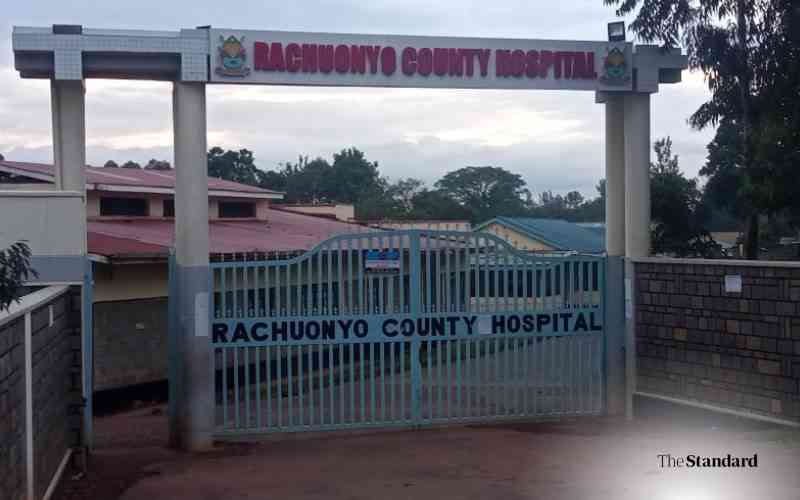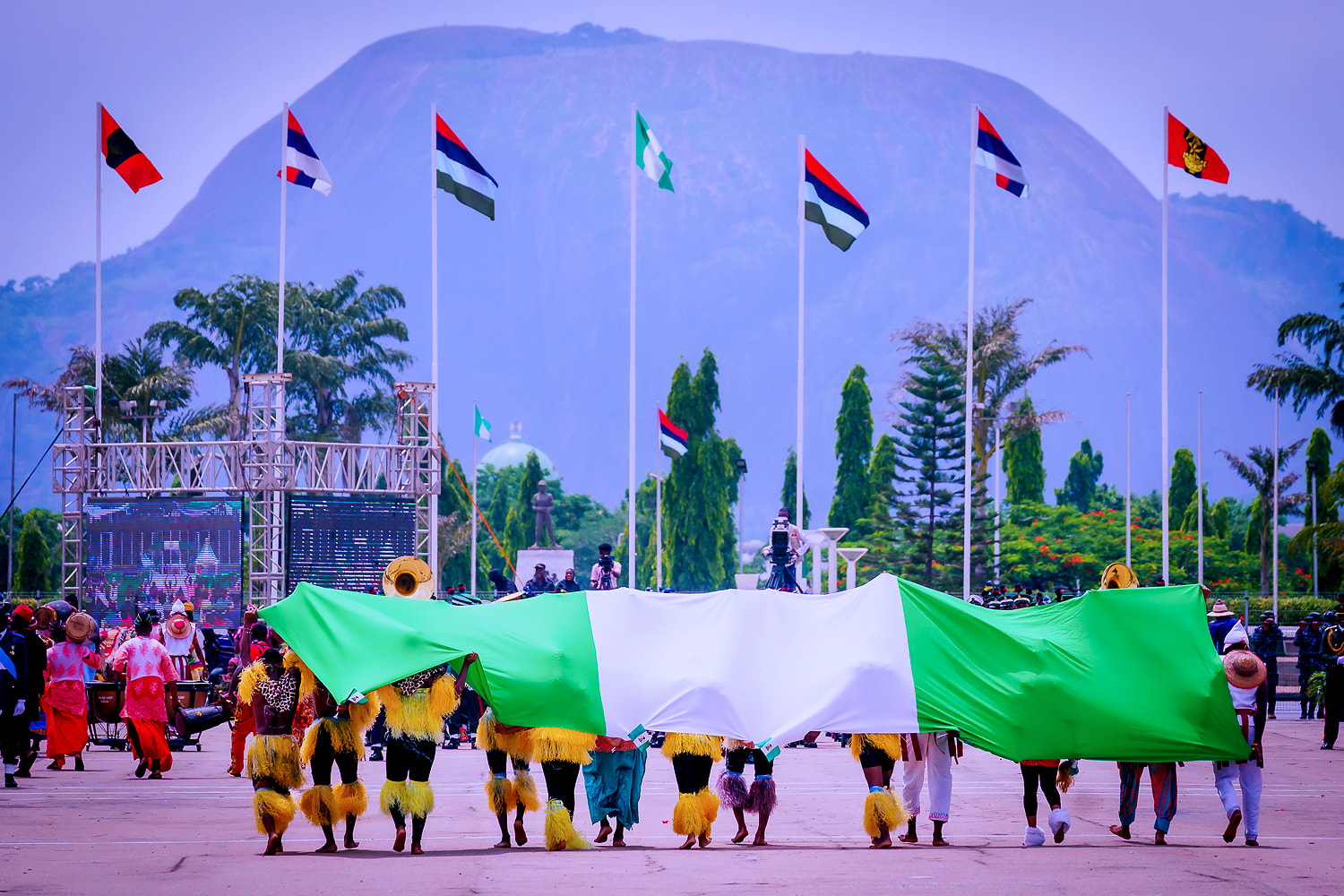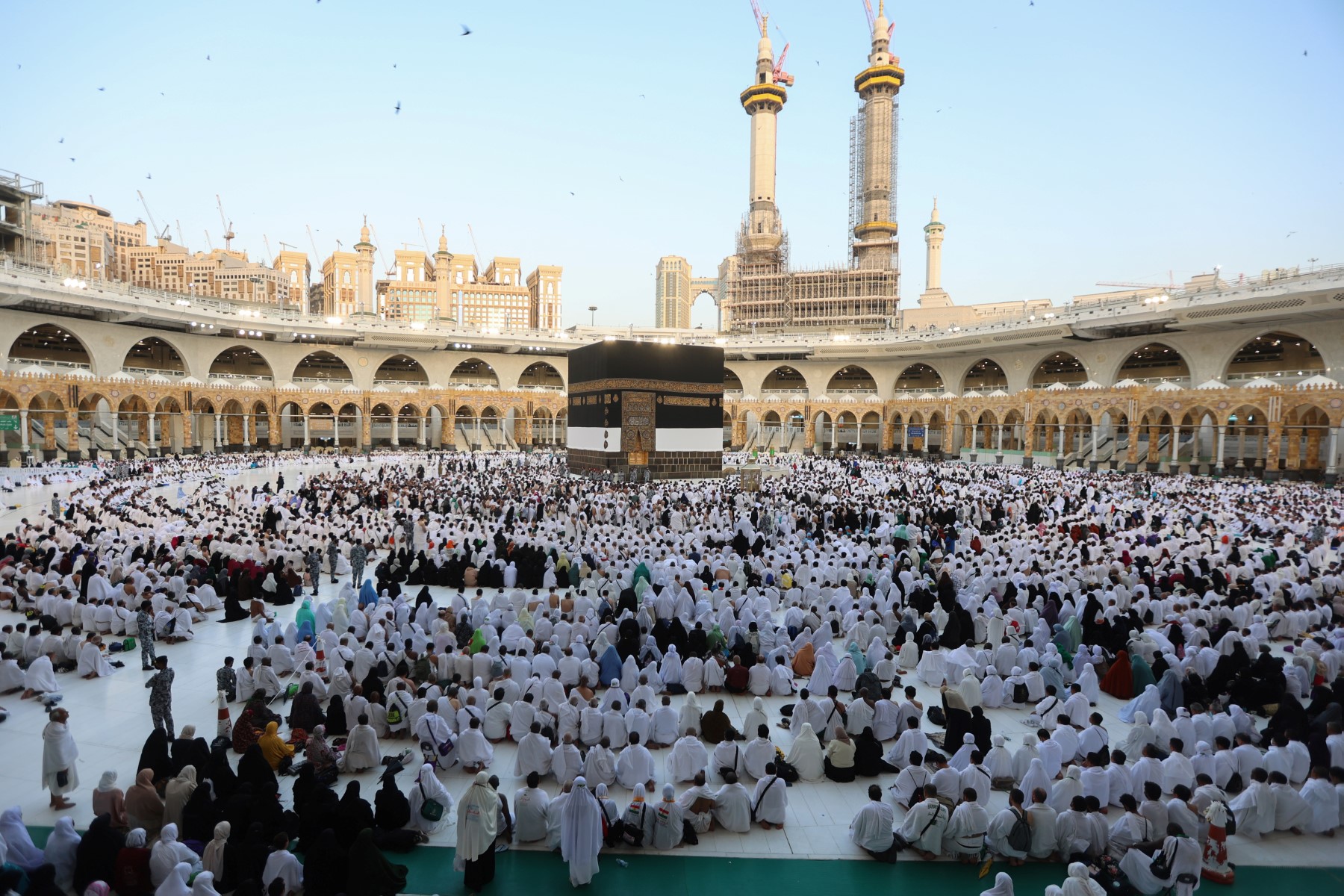Nigeria: A Rich Nation with Poor People? Unpacking the Paradox of Africa's Largest Economy
The question of whether Nigeria is a rich or poor country has sparked heated debates among economists, policymakers, and citizens alike. On one hand, Nigeria boasts the largest economy in Africa, abundant natural resources, and a vibrant entrepreneurial spirit that has produced globally recognized innovators and business leaders. The country sits atop some of the world’s most valuable hydrocarbon deposits while possessing vast agricultural potential across its 923,768 square kilometers.
Yet this economic potential stands in jarring contrast to the lived reality of most Nigerians. Over 104 million citizens – nearly half the population – live in extreme poverty, surviving on less than $1.90 per day. Infrastructure crumbles under population pressures, with epileptic power supply and dilapidated roads becoming hallmarks of daily life. Economic inequality has reached staggering proportions, with a small elite controlling disproportionate wealth while millions struggle for basic sustenance.
This paradox raises fundamental questions about how we measure national prosperity. Is wealth best judged by gross domestic product figures, per capita income distributions, quality of life indicators, or economic diversification? To properly assess Nigeria’s condition, we must examine global wealth metrics, compare the nation’s performance against peers, and analyze why – despite its vast resources – Africa’s giant continues to struggle with endemic poverty. The answers will illuminate pathways for Nigeria’s leadership to finally translate potential into prosperity for its citizens.
A country’s true wealth extends far beyond simple GDP calculations. Comprehensive assessment requires multiple indicators that reveal how economic gains translate to citizen welfare.
GDP per capita remains the most telling metric, measuring average income distribution across the population. While Luxembourg boasts $135,000 per citizen and Singapore $133,737, Nigeria’s $2,066 figure places it below smaller African economies like Seychelles ($20,000) and Botswana ($8,097). This glaring disparity shows how Nigeria’s wealth concentrates in few hands rather than spreading across society.
The Human Development Index (HDI) provides deeper insight by evaluating life expectancy, education access, and living standards. Nigeria’s 164th position out of 193 countries – trailing war-recovering Libya and crisis-stricken Lebanon – exposes systemic failures in human capital development. The average Nigerian lives just 55 years compared to 72 in neighboring Ghana, while over 10 million children remain out of school despite constitutional guarantees to free education.
Economic inequality, measured by the Gini coefficient, reveals another dimension of Nigeria’s poverty paradox. The top 1% controls over 80% of financial sector wealth while bottom 50% households survive on less than $120 monthly. Such extreme disparity fuels social tensions and limits consumer spending power that drives sustainable growth.
Diversification separates resilient economies from vulnerable ones. Switzerland and Singapore built prosperity through advanced manufacturing, pharmaceuticals, and financial services, while Nigeria remains dangerously dependent on crude oil for 90% of foreign earnings and 60% of government revenue. When global prices crashed in 2020, the economy plunged into its worst recession in decades, exposing this overdependence.
Finally, infrastructure and social services determine whether national wealth translates to better lives. Functional healthcare systems, quality education, and efficient transport networks characterize truly rich nations. Nigeria’s 4,000 megawatts of electricity for 230 million people contrasts sharply with South Africa’s 58,000MW for 60 million citizens, illustrating how infrastructure deficits perpetuate poverty despite abundant resources.
The International Monetary Fund’s 2024 rankings reveal instructive patterns about national prosperity. Luxembourg, Singapore, Ireland, Qatar and Switzerland lead in GDP per capita through specialized economic models combining financial services, technology, and good governance. These nations share common traits including strong institutions, diversified economies, and heavy investment in education and innovation.
At the opposite extreme, Burundi ($237 per capita), South Sudan ($303), Malawi ($399), Central African Republic ($427) and Mozambique ($542) demonstrate how conflict, corruption, and mono-economies trap nations in poverty. Nigeria’s $2,066 figure places it above these crisis states but well below its potential, with poverty rates exceeding war-torn Democratic Republic of Congo.
Nigeria’s $477 billion GDP makes it Africa’s largest economy by output, but this headline figure masks disturbing realities. South Africa’s smaller $406 billion economy delivers $7,055 per citizen compared to Nigeria’s $2,066, showing how population size dilutes prosperity. Egypt ($4,594) and Kenya ($2,341) also outperform Nigeria in wealth distribution despite smaller overall economies.
This concentration becomes clearer examining sectoral contributions. Oil and gas dominate exports while contributing little to employment, with the sector providing just 5% of jobs despite generating 90% of foreign earnings. Meanwhile, agriculture employs 70% of Nigerians but suffers from low productivity, receiving just 1.8% of the 2024 budget despite its poverty-reduction potential.
Nigeria’s oil production has dwindled to 1.4 million barrels daily due to theft and underinvestment, compared to Saudi Arabia’s 9 million from smaller reserves. Worse, the country imports over 90% of its refined fuel due to moribund refineries, spending $10 billion annually on petroleum subsidies before their controversial 2023 removal. This absurd paradox – a major producer importing its most vital commodity – exemplifies the resource curse, where natural wealth fuels corruption rather than development.
With just 10.86% tax-to-GDP ratio, Nigeria trails peers like South Africa (21%) and Morocco (27.1%) in revenue mobilization. Over 60% of working Nigerians operate in the informal sector beyond tax nets, while wealthy elites exploit loopholes to avoid obligations. This fiscal crisis leaves governments dependent on volatile oil rents rather than sustainable taxation, constraining investments in healthcare and education that reduce poverty.
The National Bureau of Statistics reports 63% of Nigerians (133 million people) suffer multidimensional poverty – lacking education, healthcare, clean water and sanitation simultaneously. Unemployment has reached 33% nationally and 53% among youth, creating a ticking time bomb of frustration. Even employed Nigerians face underemployment, with 22% working jobs inadequate for their skills and aspirations.
Nigeria’s 2024 $38 billion budget translates to just $165 per citizen, compared to South Africa’s $2,163 per capita allocation from its $132 billion budget. Algeria and Morocco similarly outspend Nigeria on their populations despite smaller economies. This chronic underinvestment manifests in collapsing hospitals, overcrowded schools, and disintegrating roads that constrain economic mobility.
The Nigeria Extractive Industries Transparency Initiative estimates $400 billion has been lost to oil theft and corruption since independence – enough to build 20,000km of modern highways or 500,000 primary healthcare centers. Budgets routinely allocate billions to phantom projects, with the 2020 audit revealing 256 agencies unable to account for $4.4 billion in expenditures. Such brazen theft deprives citizens of basic services while enriching connected elites.
Nigeria’s failure to diversify beyond oil has left it vulnerable to global commodity swings. Agriculture, which constituted 60% of GDP at independence, now contributes just 25% despite employing most Nigerians. Manufacturing’s share has collapsed from 10% in the 1970s to 9% today, forcing reliance on $50 billion annual imports for everything from toothpicks to petrol. This import dependency drains foreign reserves and kills local industries.
Nigeria’s power crisis epitomizes its development paradox. The entire grid delivers just 4,000MW – less than Edinburgh, Scotland’s consumption for 500,000 people. Over 40% of households lack electricity access, forcing businesses to spend $29 billion yearly on diesel generators. Similarly, just 20% of federal roads are in good condition, inflating logistics costs to 50% of product prices compared to 6% in South Africa.
Frequent policy reversals deter investment. The Central Bank’s 2021 cryptocurrency ban cost Nigeria its position as Africa’s leading crypto market overnight. Sudden forex restrictions forced multinationals like Procter & Gamble and GlaxoSmithKline to exit, while Shell’s 2024 departure after 80 years cited “operational challenges” from inconsistent regulations. Such unpredictability stifles the private sector growth needed to create jobs.
Nigeria’s 3.2% annual population growth outpaces its 2% economic expansion, ensuring per capita incomes decline even during boom years. By 2050, its 400 million people will strain resources further unless matched with commensurate job creation. Currently, 70% of graduates lack employable skills due to educational decline, with Nigerian universities ranking below 1,000 globally despite producing 500,000 graduates yearly.
The Seychelles archipelago, with just 100,000 people, generates $20,000 GDP per capita through targeted investments in high-end tourism, sustainable fisheries, and offshore banking. Despite lacking Nigeria’s oil or minerals, it delivers universal healthcare, 95% literacy, and robust infrastructure through sound governance. Transparency International ranks Seychelles Africa’s least corrupt nation (23rd globally), while Nigeria languishes at 145th.
This contrast proves that sensible policies, not just resource endowments, determine national prosperity. A small, well-managed economy can outperform a giant plagued by mismanagement.
Nigeria must urgently reduce oil dependence by revitalizing agriculture and manufacturing. With 84 million hectares of arable land (only 40% cultivated), agribusiness could employ millions while reducing $10 billion annual food imports. The government should provide improved seeds, fertilizers, and storage infrastructure to farmers while developing agro-processing zones.
Manufacturing requires reliable power and policy stability to flourish. Special industrial hubs with dedicated electricity and tax holidays could revive textile, automobile, and pharmaceutical production. The success of indigenous firms like Innoson Motors shows local manufacturing’s potential when supported.
Technology presents another diversification avenue. Nigeria’s fintech sector, birthed from necessity due to banking exclusion, now leads Africa with companies like Flutterwave and Paystack processing billions in transactions. Expanding this model to healthtech, edtech, and renewable energy could create millions of jobs.
Power sector privatization must be completed with strict performance targets. Renewable energy, especially solar, should be prioritized to bridge gaps – Nigeria enjoys 2,600 hours of yearly sunshine but harnesses less than 1% of its solar potential. Even, Kainji and Shiroro Dam power initiatives are not contributing to the national grid. Furthermore, at the last count, only a third of the subnational governments have taken advantage of the liberation of Electricity Law which should bring needed power to each State if they are urgent to seize this kind of opportunity to build legacies and improve their economic development.
Transport networks need complete overhaul. The Lagos-Ibadan rail project shows progress, but all geopolitical zones require similar connectivity to ease commerce. Road contracts should include maintenance clauses to prevent rapid deterioration. Yes, the Lagos-Calabar highway is a good one, but starting with the rail option would have been a better alternative in bringing the needed succor to the masses, and awarded to different contractors on build and operate model. This should have been a quick will for this government if strategic thinking and an initial basal studies were conducted to ask citizen along the corridor their preferences.
Broadening the tax base through biometric identification and digital payments could double revenues without raising rates. Ghana increased tax compliance from 13% to 24% through similar reforms between 2016-2020. There is hope for expansion of the tax net when the New Tax Reform bill is harmonized by the NA and passed into law. However, if it does not eliminate the multiple taxations imposed by subnational governments on artisans, Nano Entreprises and MSMES, it has failed in its purpose.
Oil sector transparency is non-negotiable. It’s been an opaque institution for a long time, because the more you look, the less you see. Why keep funding moribund and old refineries that are now relics when compared to Dangote RF of the 21st century? It doesn’t make sense, but it seems those in government are seen what we can’t see! The newly reconstituted Nigerian National Petroleum Corporation Board and Management must publish audited accounts quarterly, while modular refineries should be licensed to end fuel import dependence. Also, why should DR be importing over $28B WIT crude from Texas US, if we are indeed a serious nation? Imagine what that huge fund would do to our economy?
Education curricula must emphasize STEM and vocational skills aligned with labor market needs. Partnerships between universities and industries (like the Lagos State Employment Trust Fund) can enhance graduate employability.
Healthcare requires increased funding beyond the current 5% of budget. Primary healthcare centers should be equipped to reduce maternal mortality, currently the world’s fourth highest. Many Nigerians are dying of ailments that are treatable due to lack of requisite health facilities closer to them. It seems only the rich can afford good healthcare today, hence Nigeria is poor!
5. Social Protection
The government (FGN and States) must cushion reforms like subsidy removal with robust social programs. The existing Conditional Cash Transfer scheme should be expanded from 2 million to 20 million households using digital verification to prevent graft.
Conclusion: The Verdict on Nigeria’s Wealth
Nigeria stands as the world’s most perplexing economic paradox – a potentially rich nation that remains functionally poor. Its vast resources, demographic energy, and entrepreneurial spirit position it for greatness, but systemic failures in governance, diversification, and infrastructure perpetuate widespread poverty.
The verdict is clear: By GDP size, Nigeria is rich; by living standards, it remains disturbingly poor. Bridging this gap requires courageous leadership to combat corruption, diversify the economy, and invest in human capital. The examples of Seychelles, Rwanda, and Botswana prove that African nations can transcend resource curses through disciplined governance.
As Nigeria approaches its seventh decade of independence, the urgent question isn’t whether the country is rich or poor, but whether its leaders will finally make the choices needed to transform latent potential into shared prosperity. The time for that transformation is now.
Share this analysis to advocate for a #NewNigeria built on justice, opportunity and shared prosperity!
Prof. Sarumi is the Chief Strategic Officer, LMS DT Consulting, Faculty, Prowess University, US, and ICLED Business School, and writes from Lagos, Nigeria. He is also a consultant in TVET and indigenous education systems, affiliated with the Global Adaptive Apprenticeship Model (GAAM) research consortium. Tel. 234 803 304 1421, Email: [email protected]










